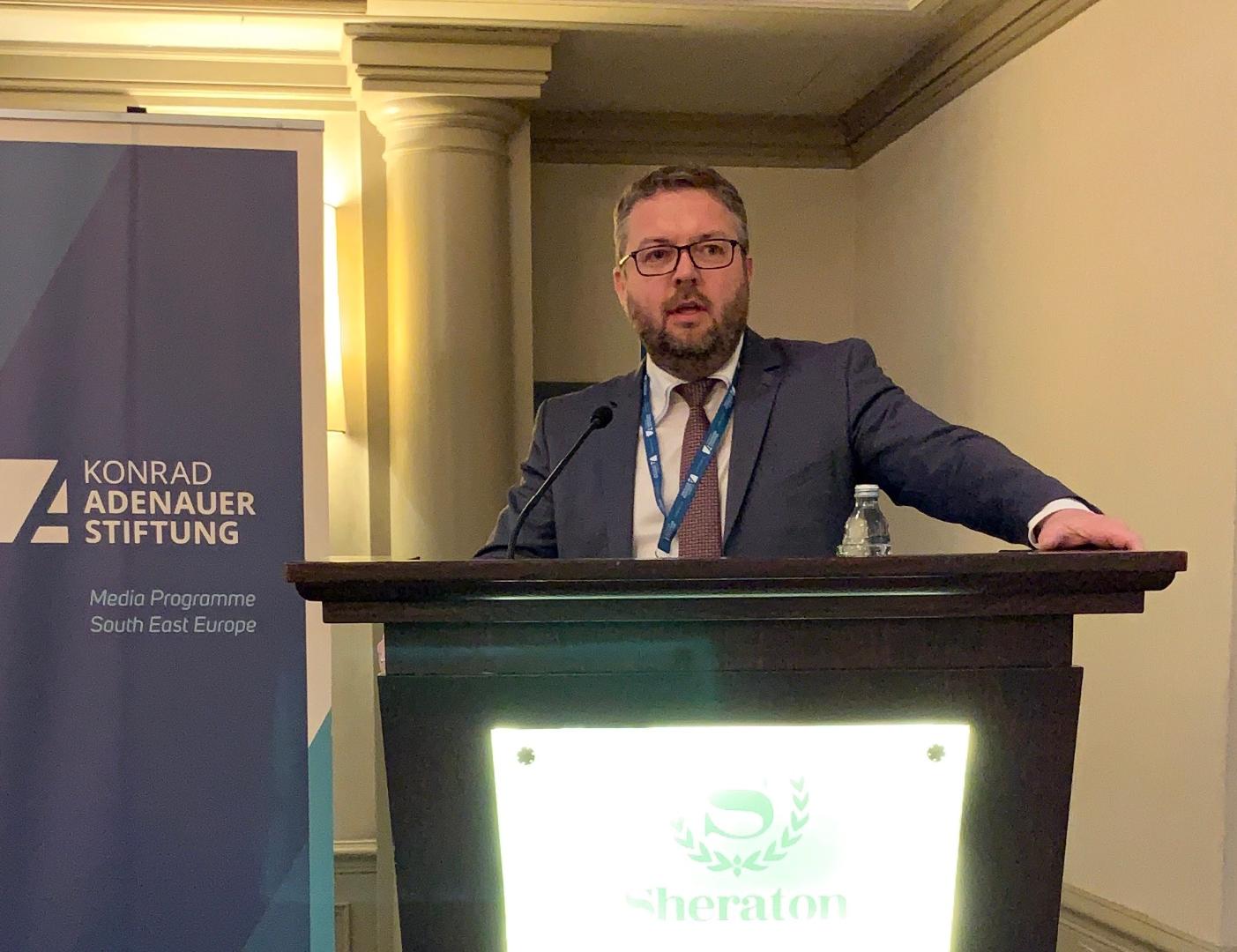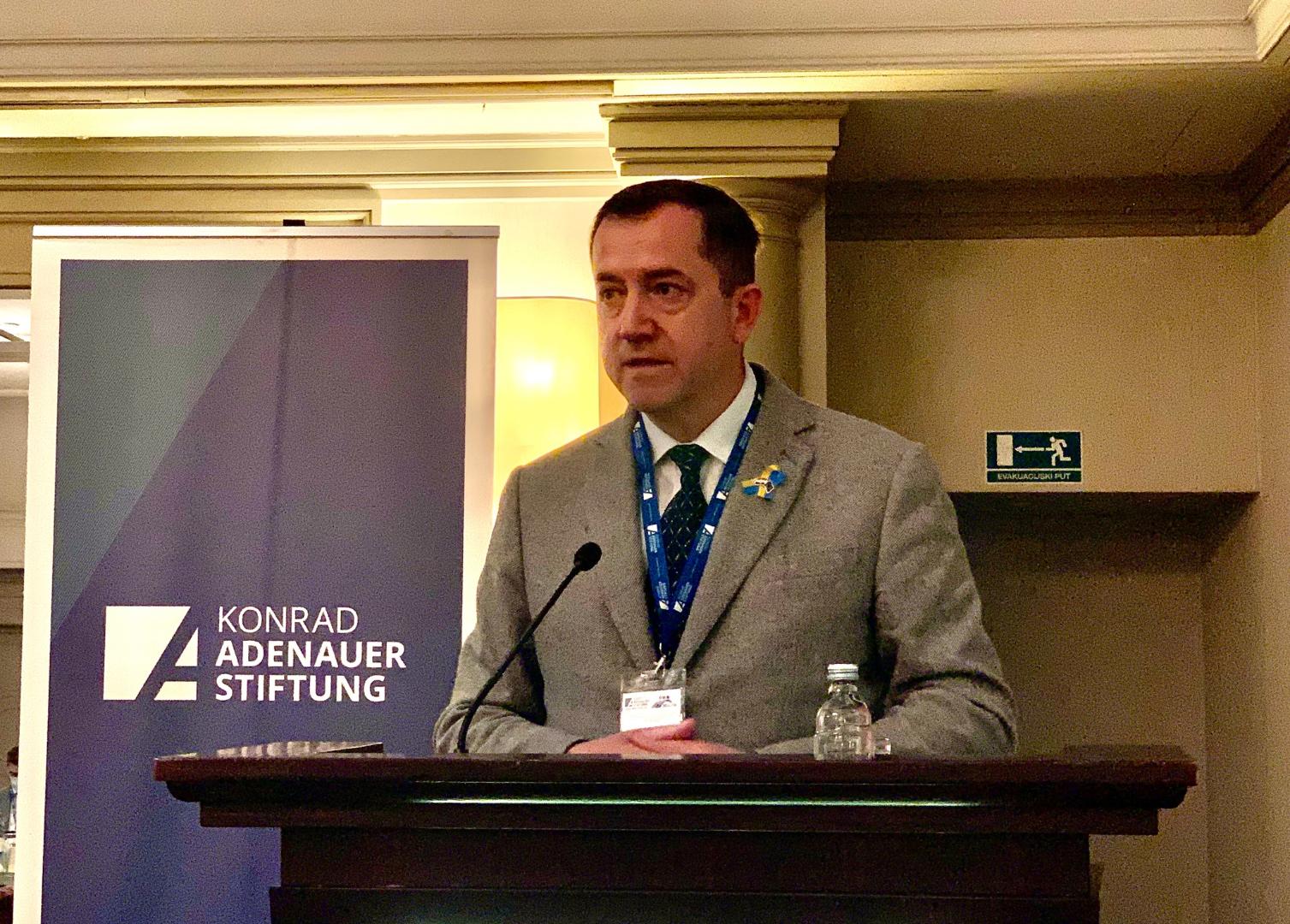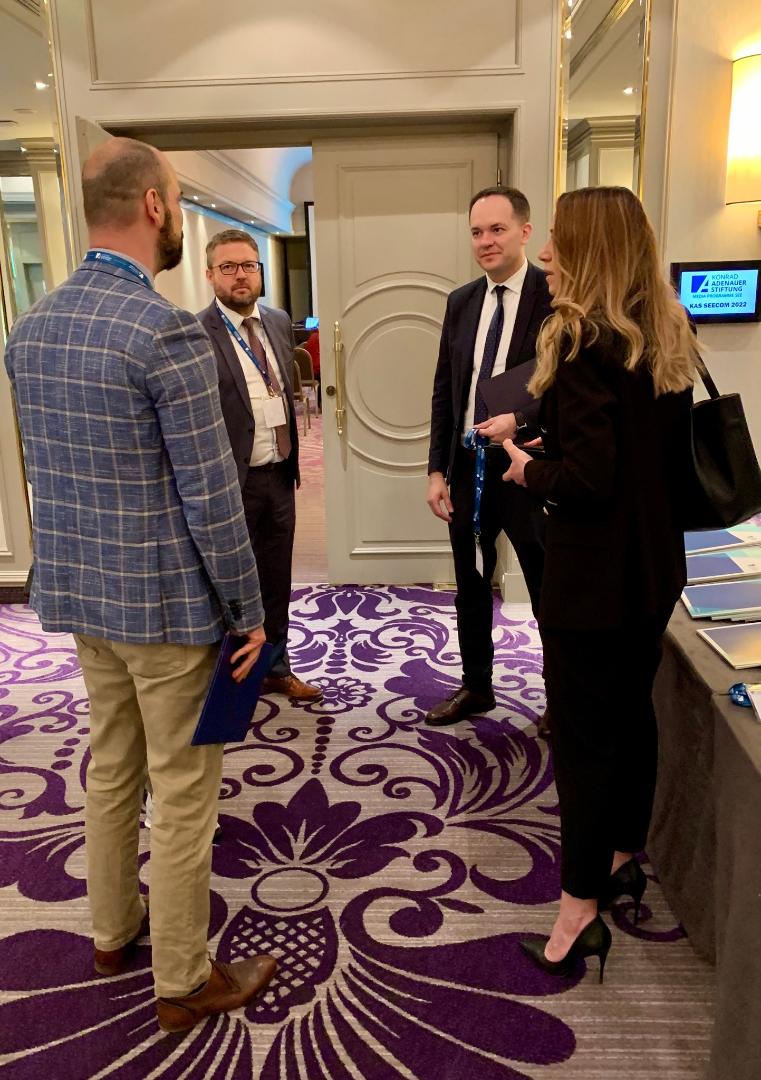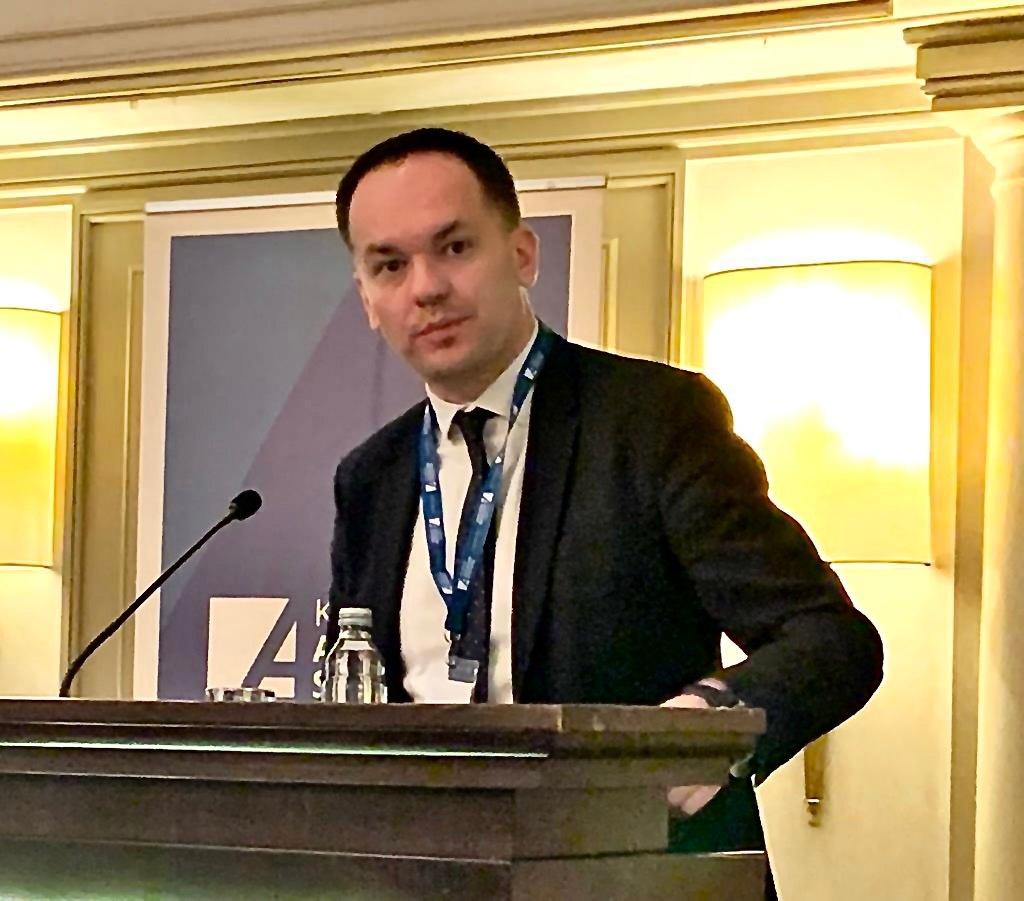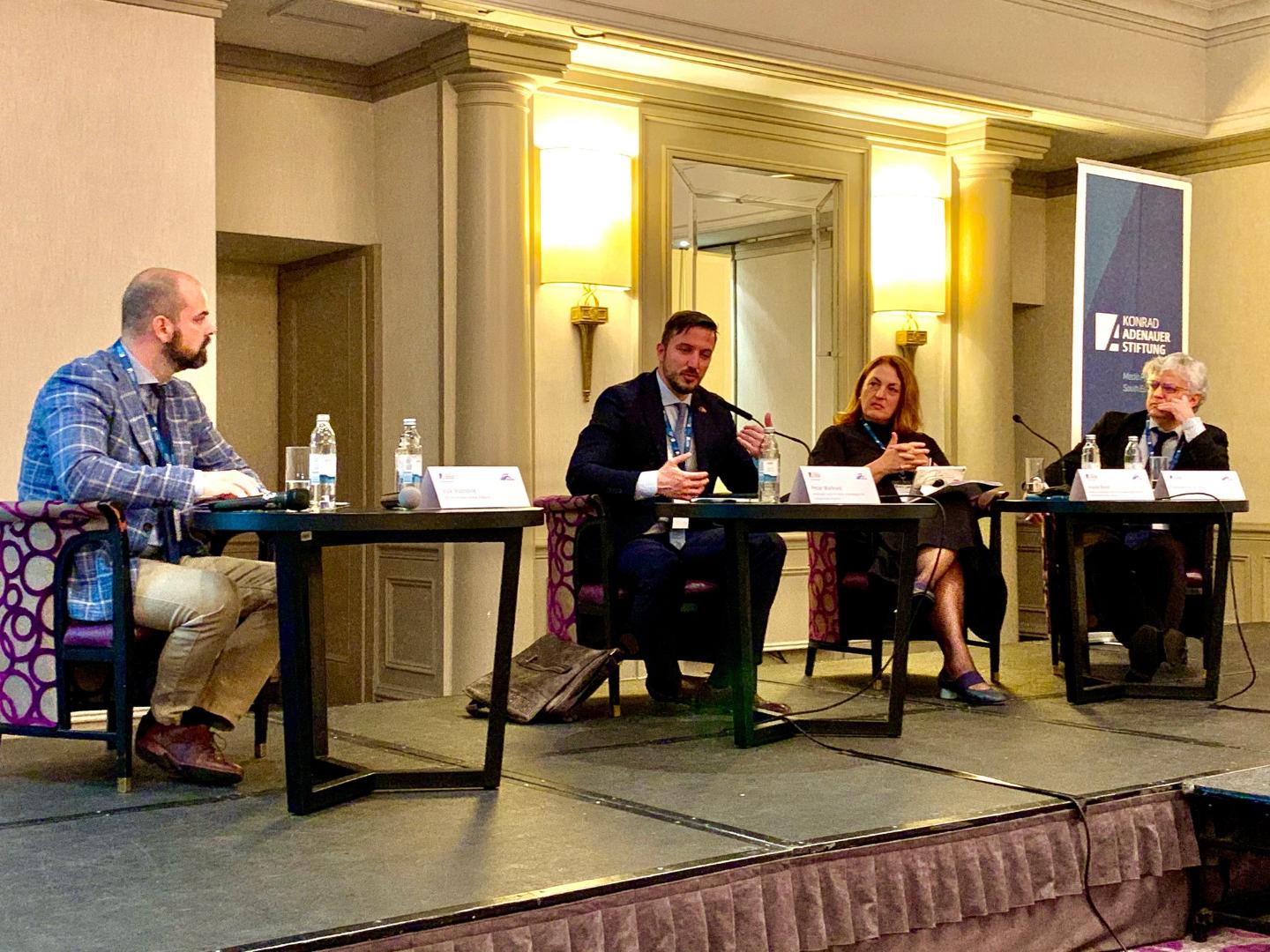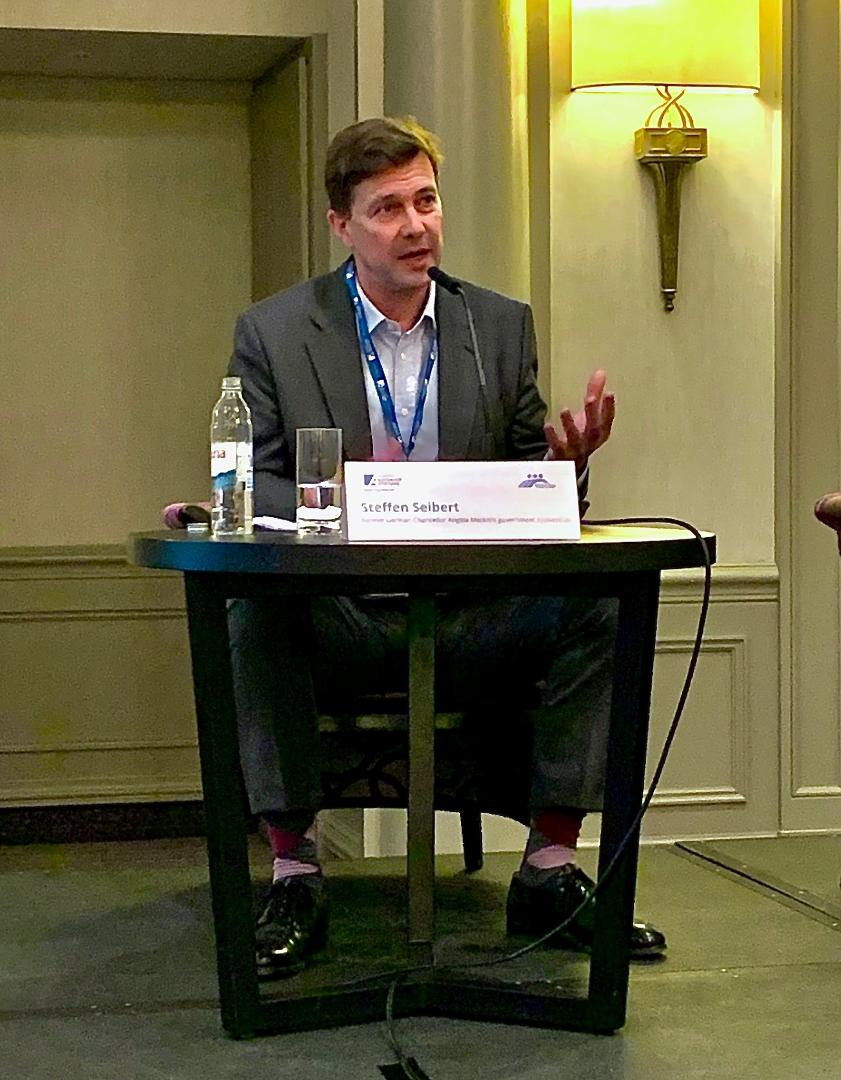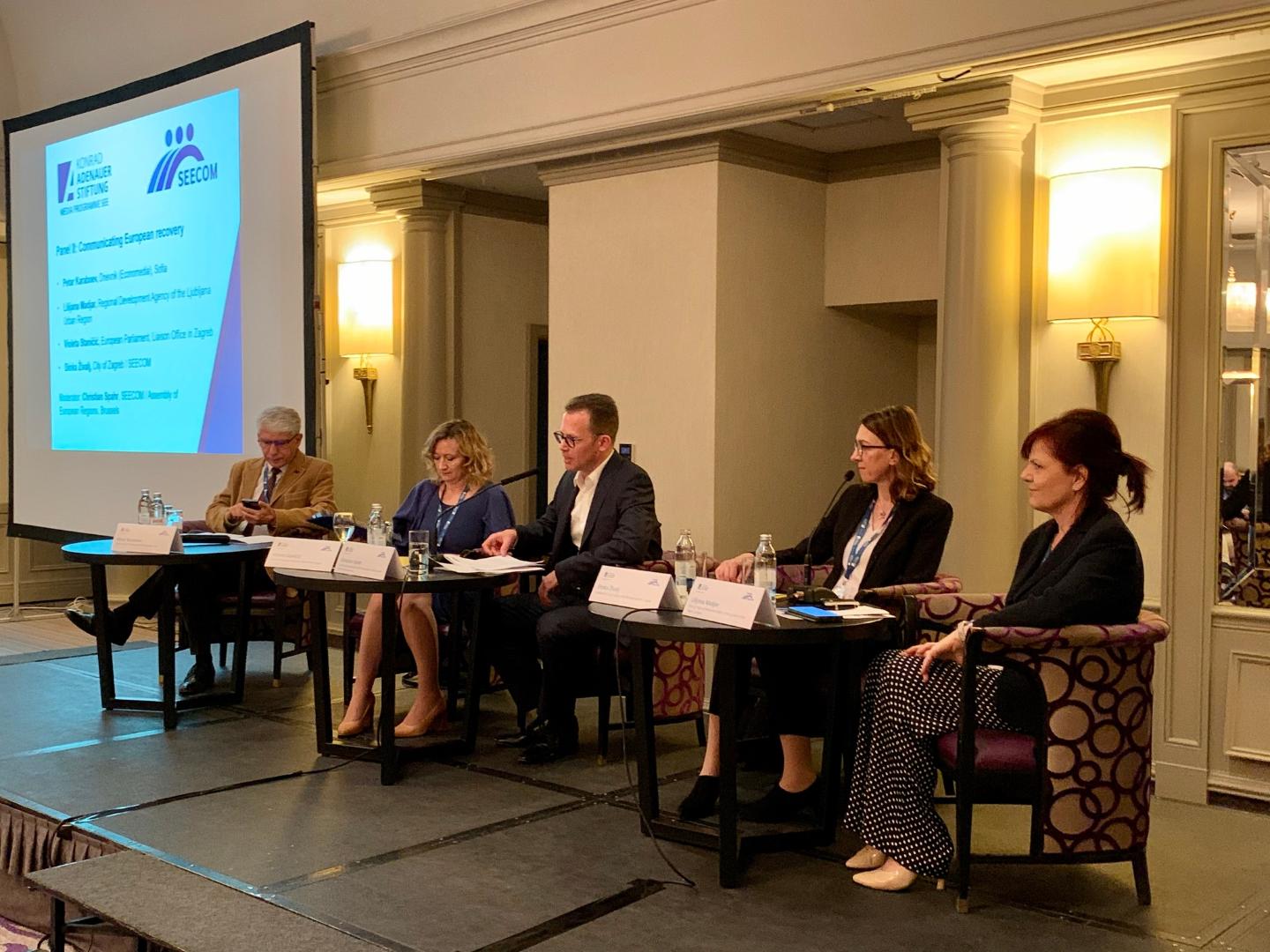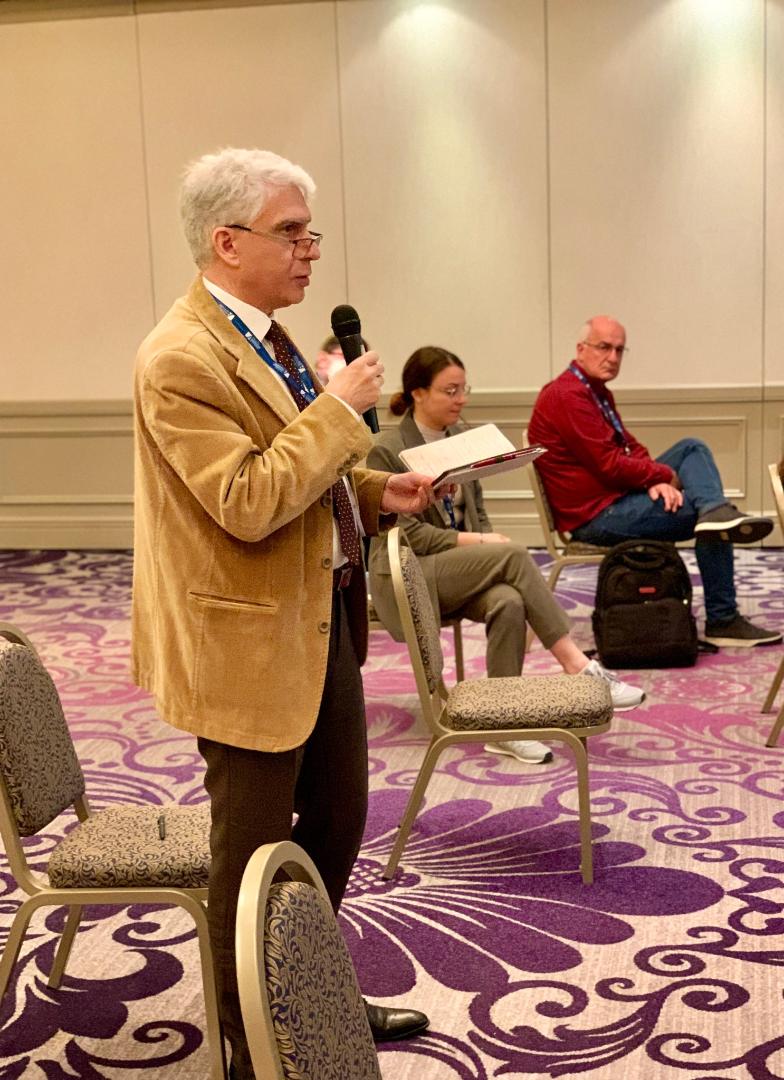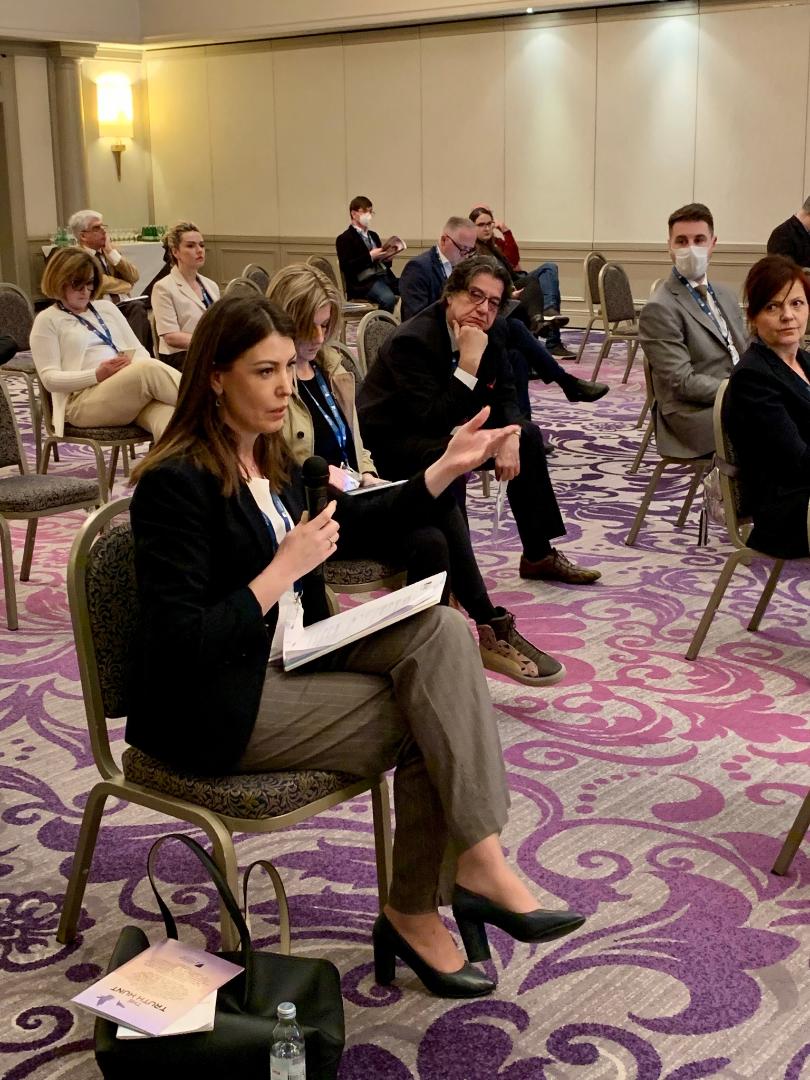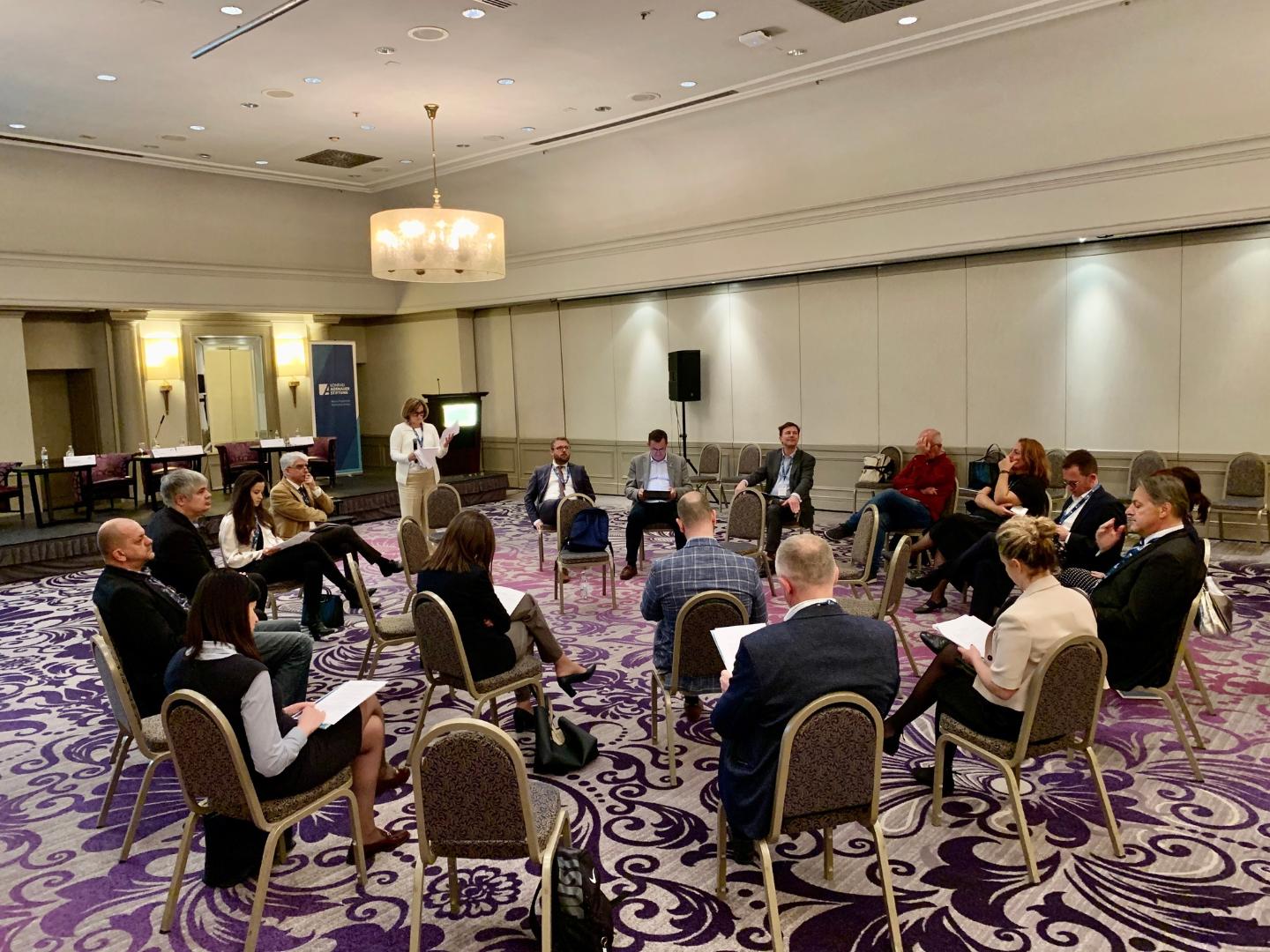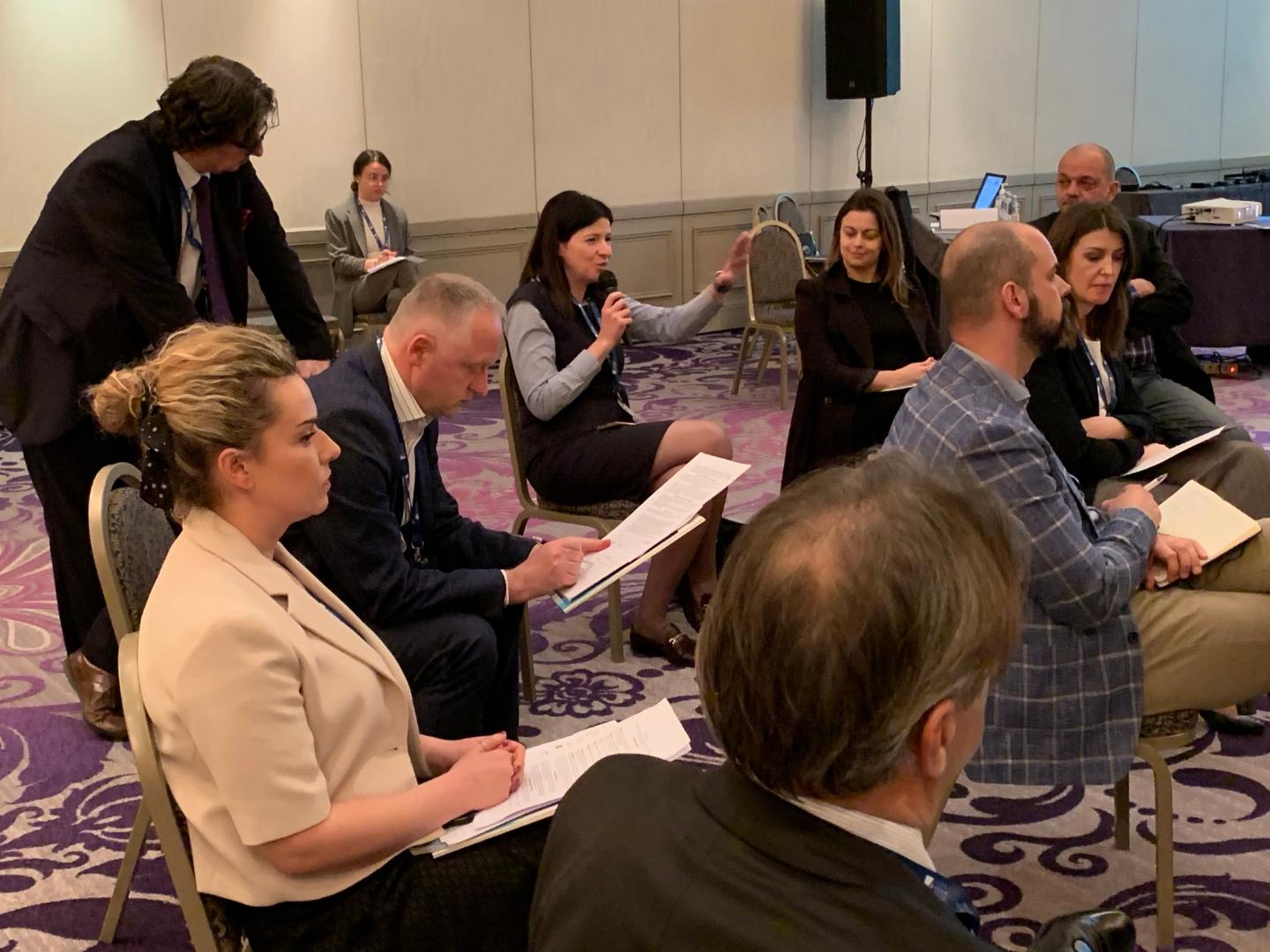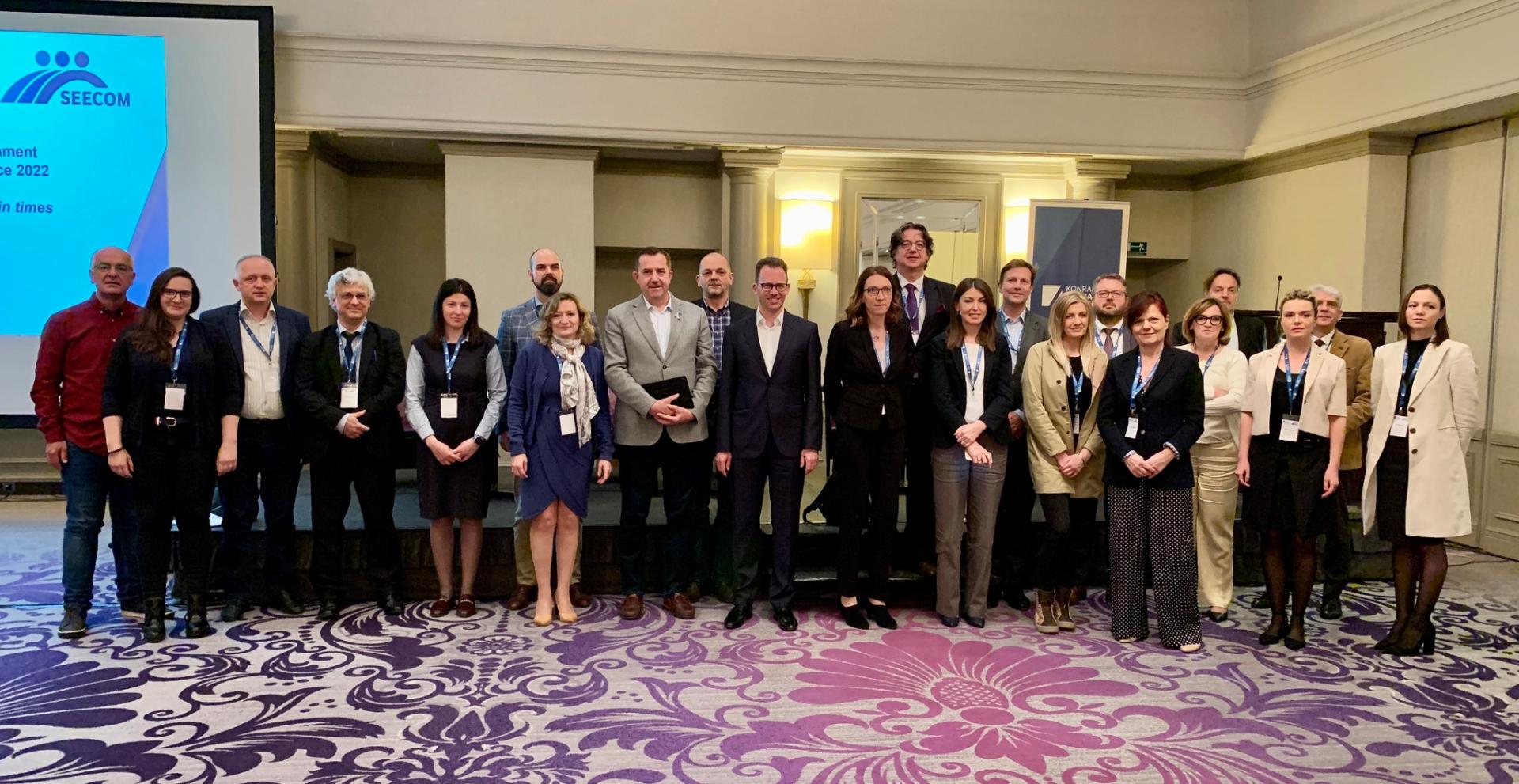KAS/SEECOM: “How to earn public trust in times of clash of values” - Media Programme Southeast Europe
The KAS Media Programme South East Europe organised this conference together with its long-standing partner SEECOM, South East Europe Public Sector Communication Association. Guests of KAS/SEECOM 2022 were again government spokespersons, communication experts and journalists from the whole South East European region, discussing current opportunities and challenges in the field of political communication together with experts from Germany and Brussels.
Hendrik Sittig, Head of the KAS Media Programme South East Europe, and Ognian Zlatev, SEECOM President and Head of the European Commission Representation in Croatia, opened the conference: „It is important to keep reminding ourselves of the values that are important to us in a democratic society: human dignity, freedom, equality, the rule of law and respect for human rights. These are the values that we at the Konrad-Adenauer-Stiftung stand for and that we will continue to support with our projects. As a Media Programme we add to them the freedom of the press and the independence of journalists and their work “, said Hendrik Sittig. „The Russian invasion of Ukraine once again clearly shows that democracy cannot be taken for granted. It is important to always take the mentioned values seriously and to defend them - in all democratic countries: within and outside the European Union “. Ognian Zlatev also underlined that democracy cannot be taken for granted, that citizens have to actively work for it and that it must not only be lived, but also cultivated. Democracy is a practice that must be adapted to the current circumstances so that it remains functional and its institutions intact.
Prominent participants at this year's event were Zdenko Lucić, State Secretary at the Croatian Ministry of Foreign Affairs, and Steffen Seibert, long-time government spokesperson alongside German Chancellor Angela Merkel. In his speech, Zdenko Lucić emphasised that respect between communication partners is crucial in any communication. Without respectful interaction and an appreciation-based attitude, serious communication would be impossible.
The first panel was followed by a discussion on participatory democracy and how citizens can be successfully involved in an active civil dialogue. Panellists were Ivana Đurić (Head of Communications Department, Ministry of European Integration of the Republic of Serbia), Vincenzo le Voci (Secretary-General "Club of Venice") and Petar Marković (Ambassador and Head of the Representation of Montenegro to the European Union). The first panel was moderated by Vuk Vujnović (SEECOM Secretary-General). The debates focused on the conference on the future of Europe, the results of which are to be presented in spring 2022. The topic of the Western Balkans and the lack of its integration into the European project, according to some opinions, came up repeatedly. It was criticised that regions that need more support were hardly involved in the EU Future Conference, or only at a very late stage.
Nevertheless, the exchange also led to mutual acknowledgement that results can only be achieved through joint efforts. It also became clear that all political, social and economic projects and efforts within Europe are currently overshadowed by the Russian war of aggression and the horrific crimes in Ukraine. Yet this is precisely why politics must take countermeasures and citizens should be strongly involved in joint European projects on the future. The panellists agreed that political will and appropriate framework conditions were indispensable to strengthen citizens' trust in democratic institutions and to motivate them to actively participate in policy-making.
The plenary talk by former government spokesperson Steffen Seibert was the highlight of the conference. In his talk, he covered a wide range of topics from the current war in Ukraine all the way to his broad experiences gained in eleven years as government spokesperson. Afterwards, he answered numerous questions from the participants in a dynamic discussion.
In the second panel, Petar Karaboev (Deputy Editor-in-Chief of the Bulgarian online portal Dnevnik/Economedia), Lilijana Madjar (Director of the Regional Development Agency of the Ljubljana Urban Region), Violeta Staničić (Head of the European Parliament Liaison Office in Zagreb) and Dinka Živalj (Spokesperson City of Zagreb) discussed the European recovery plan. The panel was moderated by Christian Spahr (Secretary-General of the Assembly of European Regions in Brussels). How EU policies and programmes benefit the citizens and how these programmes reach the citizens were shown by numerous examples. Efforts on the part of policy-makers to bring European integration instruments closer to citizens were presented on three different levels - national, regional and local.
The so-called Un-Conference, which is meant to serve the free exchange between journalists and spokespersons and the reduction of prejudices and misunderstandings between the two professions, was the final part of the event, meanwhile part of a well-established tradition. The lively debate was moderated by Leila Bičakčić (Head of the Centre for Investigative Reporting, Sarajevo) and Nebojša Regoje (Head of Public Relations at the Ministry of Foreign Affairs of Bosnia and Herzegovina). The focus was on the mission, role and vision of communication experts, government spokespersons and journalists in the new world of digital communication. The urgency of establishing an official and standardised code of ethics for spokespersons was also part of the discussion.



